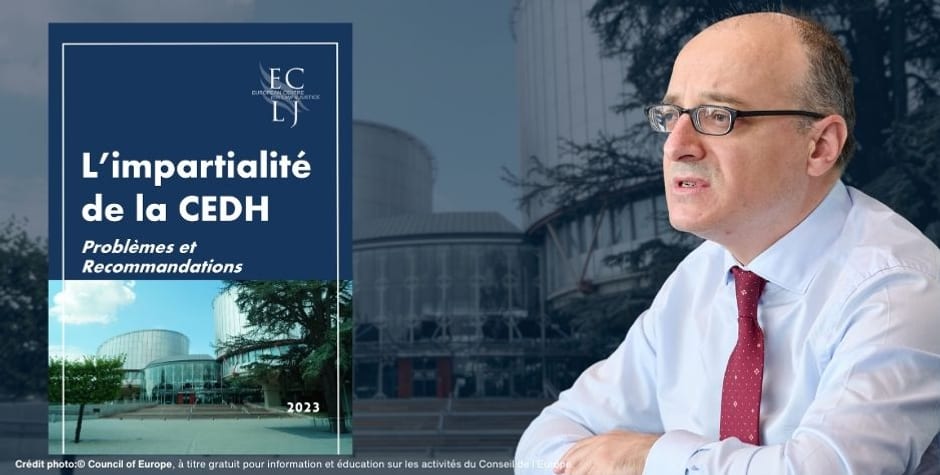

Conflicts of Interest at the ECHR: the ECLJ Deplores a Significant New Case
Conflicts of Interest at the ECHR: the ECLJ Deplores a Significant New Case
On March 4, 2025, the European Court of Human Rights (ECHR) ruled against Bulgaria in the Girginova case (No. 4326/18) for violating the right to freedom of expression (Article 10) and the right to an effective remedy (Article 13). The journalist Galina Girginova wanted to know the reasons for the acquittal of the former Bulgarian Minister of the Interior in a case of secret surveillance. The Bulgarian court had rejected her request on the basis of the Bulgarian law on the protection of classified information. The journalist therefore lodged an appeal with the ECHR. In this case, Judge Pavli sat in a situation of conflict of interest.
Photo credit: © Council of Europe, free of charge for information and education on the activities of the Council of Europe.
Conflicts of interest, an obstacle to good justice
The applicant, Galina Mariova Girginova, is a journalist at Sadebni Reportazhi, an online media outlet dedicated to judicial reform in Bulgaria. This media outlet is supported by the Center for Investigative and Forensic Journalism Foundation, of which Ms. Girginova is also the director. It is an 18-month activist project aimed at reforming the Bulgarian judicial system. The Center receives funding from the Open Society Institute - Sofia.
As part of this project, Ms. Girginova worked on the trial of the former Minister of the Interior, Tsvetan Tsvetanov. He was on trial for having ordered secret surveillance, which was considered illegal. The court had acquitted him, but the reasons for the acquittal had not been published, contrary to what is normally required by Bulgarian law. The applicant therefore requested the publication of this information. The Sofia court rejected this request on the grounds that the court decision contained classified information. Ms. Girginova challenged this refusal and then turned to the ECHR, which ultimately condemned Bulgaria.
Galina Girginova called on Aleksandar Kashamov to assist her with her application. This lawyer is a member of the Board of Directors of the Open Society Institute in Sofia. However, Darian Pavli was a member of the panel of judges while also being a former employee and manager of the Open Society in Albania and New York. Judge Pavli therefore had a professional relationship with the applicant and her lawyer. He should therefore not have judged this case to avoid any conflict of interest. Article 28 of the ECHR rules is clear on this point: “No judge may take part in the consideration of a case in which he has any personal interest, such as [...] a close personal or professional connection [...] with either party.”
Furthermore, Darian Pavli had also worked on behalf of the Open Society Foundation on the reform of the justice system in Albania; a reform criticized for having the effect of reinforcing the power in place.
Broader problems
This case of conflict of interest is part of a broader problem revealed by two ECLJ reports. Between 2009 and 2019, 22 judges from seven NGOs active at the ECHR had adjudicated 88 cases involving their own organizations. A second analysis (2020-2022) confirmed the persistence of these conflicts of interest, with 54 cases identified out of 34 cases. Here, Judge Pavli had a connection with the applicant and her lawyer due to his position as fromer manager at Open Society.
Faced with such conflicts, Bulgaria has already sent requests to the ECHR to recuse Bulgarian judge Yonko Grozev. In addition to his duties at Open Society, Yonko Grozev has judged cases brought and supported by the Bulgarian Helsinki Committee, an organization funded by the Open Society that he founded and directed. In at least four cases, the government of this country requested the recusal of Judge Grozev because the applicants' lawyer belonged to the Bulgarian Helsinki Committee and was acting on its behalf. The Court rejected all these requests for recusal.
In addition to these conflicts of interest, there are also serious doubts about the veracity of Darian Pavli's CV. He was elected judge in January 2019 by presenting himself as a senior attorney, a requirement under Albanian law. However, no proof of his registration with a bar association has been found, either in Albania or in the United States. Several MEPs have tried to obtain answers, but their questions have been blocked or censored by the European institutions, reinforcing doubts about the reality of his CV.
Bulgaria once again finds itself the victim of a conflict of interest, leaving reasonable doubt as to the impartiality of the judgment. The Bulgarian government could request that this case be referred to the Grand Chamber so that the case can benefit from all guarantees of impartiality during its handling.












